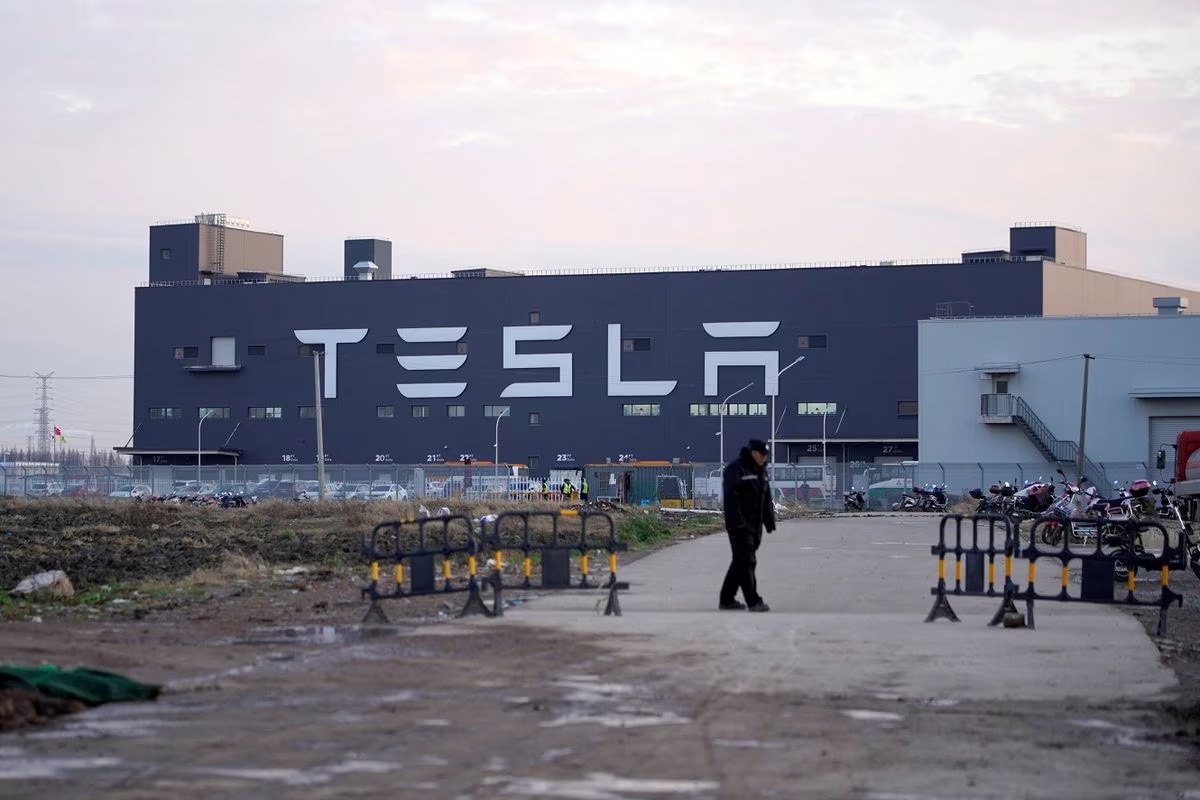Summary
- Tesla seeks approval to extend German EV, battery plant
- Plans battery cell testing, recycling
- Water recycling facility to be extended
- If approved, changes to take effect in H1 2024
BERLIN, July 19 (Reuters) – Tesla (TSLA.O) is planning sweeping changes to its factory near Berlin, including extensions to its battery cell production, indicating ramp-up plans remain underway despite a recent shift in focus to scaling up in the United States.
A day after Tesla sought to assuage local concerns with a question-and-answer session on the expansion, application documents published by the local environment ministry and water authority on Wednesday showed a long list of modifications Tesla plans to make at the EV and battery plant.
The documents said Tesla will produce lithium-ion cells for use in electric cars and energy storage systems in various locations around the globe, with the expansion to include cell testing, new areas for mixing materials, and “all other processes and components for the production of anodes and cathodes.”
Tesla had said in February this year that it was assembling battery modules at its German plant and preparing to produce electrodes but had not yet begun doing so because it was focusing cell production in the United States on account of the subsidies offered under the Inflation Reduction Act.
Tesla did not immediately respond to a request for comment on whether cell production in Germany had advanced since then.
Ultimately, Tesla wants to double capacity to 100 gigawatt hours of battery production and 1 million cars per year, putting the plant’s capacity above Volkswagen’s (VOWG_p.DE) at its Wolfsburg headquarters.
It currently produces around 5,000 cars a week in Grunheide and has not provided a timeline for ramping up output.
Modifications outlined in the application, which are just the first of three stages of changes, should become operational in the first half of 2024, according to the documents.
These include extensions or changes to existing parts of the facility like water recycling, the press shop and paint shop, as well as constructing new elements such as a material storage facility, the document said.
Tesla has faced considerable delays to its planned opening date for the plant due to a high number of objections filed by local citizens, mainly over environmental impact and water usage.
Locals have until mid-September to file objections to the latest proposals.
For the expansion, Tesla has committed to not using any additional water capacity, instead recycling the 1.4 million cubic metres of water it is licensed to use.











